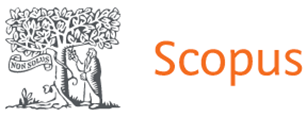Applying National Identity Narratives in Training Inclusive Teachers
DOI:
https://doi.org/10.15330/jpnu.12.1.119-134Keywords:
teacher training, inclusion, national identity, Ukrainian Sich Riflemen, sign language, war, UkraineAbstract
The paper examines the challenges of training educators to organize an inclusive educational environment in the context of the existential threat to the Ukrainian nation. It is stated that epistemic injustice, which the authors consider in the aspects of hermeneutical and testimonial injustice caused by the colonial policies of the aggressor state, must be addressed through mechanisms that ensure the resilience of the multi-ethnic Ukrainian nation. It is determined that this national identity comprises a complex of individual and community identities, the formation of which requires a decolonial and inclusive approach. The authors describe a study exploring the understanding of the historical period of the Ukrainian Sich Rifles among future teachers, students with special educational needs, parents, and community members. The study also examines the influence of this historical period on the formation of national identity and statehood in the first half of the 20th century and its connection to contemporary realities. It was found that respondents lack well-structured knowledge and skills in analytically comparing historical periods and the present. A methodology was developed and proposed for preparing educators and fostering inclusive interaction between teachers and students with hearing disorders. This methodology synthesizes elements of national-patriotic education using materials from the historical epoch of the Ukrainian Sich Rifles. The hypothesis was confirmed that the sign language used by deaf and hard-of-hearing Ukrainians contains elements of the calqued Russian language but lacks unique signs to denote many nationally significant linguistic units. The study substantiates the following tasks: equipping future educators and students with a contextual understanding of the historical era of the Ukrainian Sich Rifles, focusing on its educational and cultural dimensions during the liberation movements of the early 20th century; developing methods for analyzing the ideological foundations and cultural practices of that period for modern students and schoolchildren through the awareness and formation of generational continuity and connections; incorporating elements of patriotic education into inclusive practices; fostering a nationally conscious sign-language identity; and informing the international community about more than a century of Ukraine's efforts to assert its nationhood. The article emphasizes that access for young people with hearing disorders to the historical, cultural, and linguistic heritage of the nation is a vital aspect of their inclusion in the creation and defense of the state.











